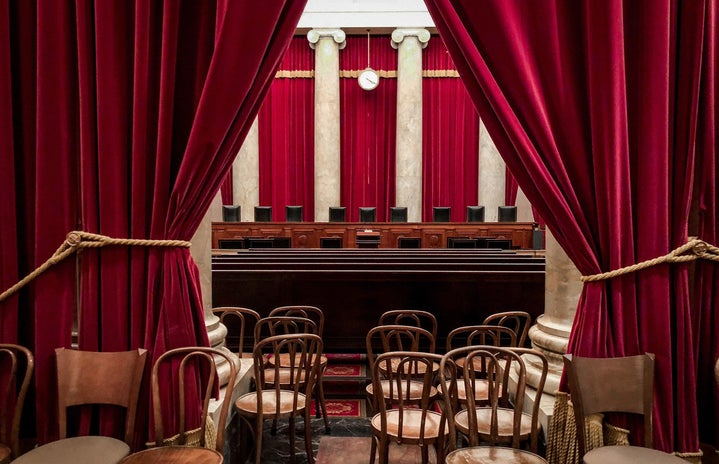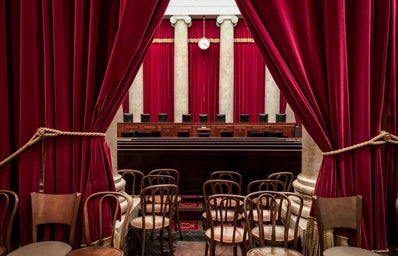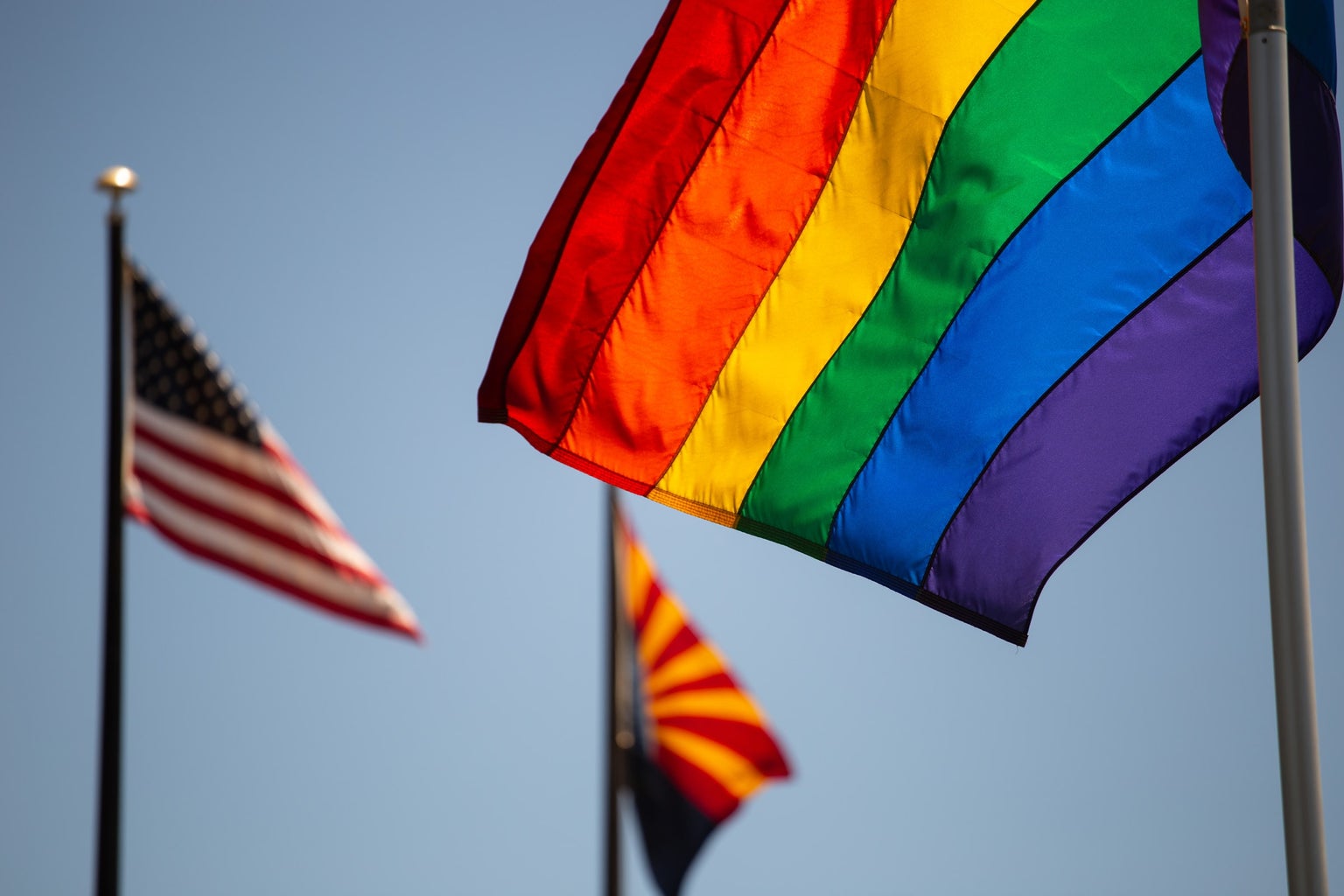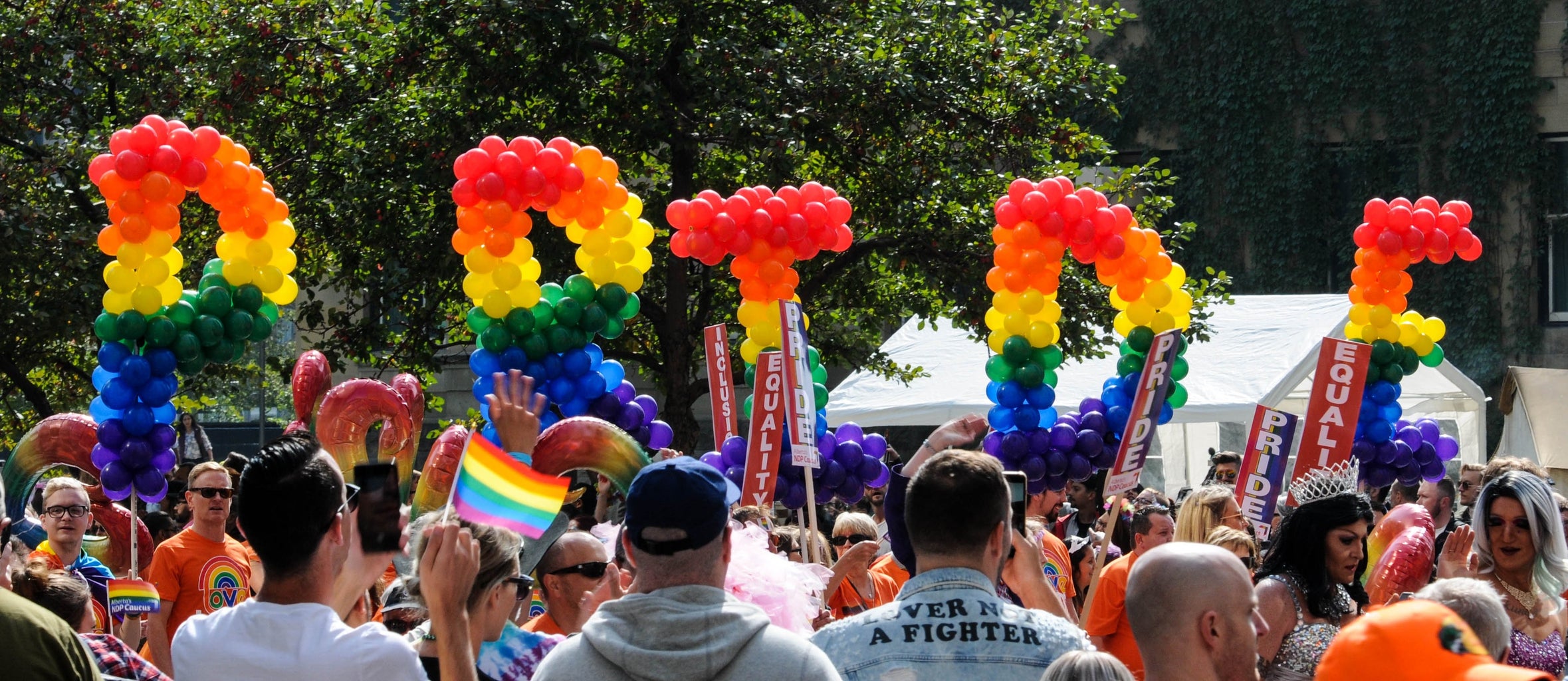It’s “SCOTUS season”, when the majority of case decisions made by the Supreme Court of the United States are released. This usually happens in late June and early July, when the Court takes summer recess–and boy oh boy, we have been hit with some controversial decisions lately.
I’m a Colorado resident who attends the University of Colorado Boulder. So, besides the normal invested interest I have in LGBTQ+ rights, I have been keeping an especially close eye on a Colorado-based LGBTQ+ discrimination case, “303 Creative L.L.C v. Elenis” , since it was announced the Court would be hearing it in 2022.
On June 30, 2023, it was decided that the First Amendment protects the right to refuse service to LGBTQ+ couples. The ruling was made 6-3 along ideological lines, with Justice Neil Gorsuch writing the conservative majority opinion–who also ruled against protection from discrimination and in favor of free speech in the 2012 infamous wedding case decision.
I am writing this article hours after the decision was released, and the internet is already filled with outcries from LGBTQ+ activists, victory celebrations from conservative Christians, and debates from legal scholars on the big question: What does this decision mean?
The First Amendment and How it Can Be Manipulated
After the shock of initially reading the decision, the first thought I had was how this is not the first time the First Amendment’s breadth has been expanded in the name of homophobic or racist “speech”.
The 1969 landmark case “Brandenburg v Ohio”, although incredibly important for our First Amendment rights, was argued and decided in favor of a leader in the Ku Klux Klan.
The 2012 case “Masterpiece Cakeshop v Colorado Civil Rights Commission” used the Free Exercise Clause of the First Amendment to allow discrimination against LGBTQ+ couples when business owners wanted to do so.
Simply put, looking at how the Court has treated First Amendment protection in the past, it’s not a surprise that this current case went the way it did. And honestly, the ethics and case law of First Amendment rights, especially when they are contradicting other rights (such as anti-discrimination), can get super complicated. Too complicated for me, too complicated for you, and even too complicated for the most well regarded legal scholars in the world: now-retired Justice Anthony M Kennedy was “the author of every SCOTUS decision protecting gay rights under the constitution…and also the most ardent defender of free speech”.
The Supreme Court was never supposed to be political. So when you put the entity of SCOTUS into an incredibly political position–which has been happening for decades–it’s going to get messy. When you stake LGBTQ+ rights against arguably the most well-known right that Americans have–it’s going to get even messier. And get this: when you base the LGBTQ+ versus First Amendment argument on an almost entirely hypothetical situation?
You’ve guessed it. At this point, using the word “messy” to describe the 303 Creative decision becomes a gross understatement.
Wait–The SCOTUS Case Was Dealing With A Hypothetical Situation?
Put in the words of “New York Times” journalist Adam Liptak, the 303 Creative case was based on “conjecture and speculation”.
The Colorado web designer, Ms. Smith, who claimed violation of her First Amendment rights, had never turned down a gay couple, and has never been punished for violating the anti-discrimination law struck down by the case. The case “was built on imaginary grounds”.
The argument Ms. Smith and her team made was that she felt fear in hypothetically expanding her website design business into wedding websites, because hypothetically if she built websites for straight couples, she could be forced to create websites for LGBTQ+ couples–which she did not want to do.
Eloquently put by Vox Journalist Ian Millhiser, “The case is…a complete mess”. Many argued that it shouldn’t have been heard at all. But at the same time, it’s a strong First Amendment argument to say that Smith should not be forced to express anything (even though, remember, she never even was). Such a strong First Amendment argument, in fact, that the hypothetical imagination games that this case played now have real-life, incredibly serious implications.
What’s next?
The decision itself has a relatively small scope. It does not grant businesses the power to turn away LGBTQ+ couples. What it does allow is for business owners to reject individual commissions as artists that go against their conscience. That being said, it erodes anti-discrimination rights pretty significantly, and opens the SCOTUS stage for further erosion.
What really interested and disappointed me about this case is that it was welcomed into the hallowed halls of the Supreme Court at all. The Supreme Court itself has said it does not have jurisdiction over hypothetical situations (which was decided unanimously in the 1998 case Texas v. United States).
This case is not your typical First Amendment versus anti-discrimination case. It is a case that takes hypothetical First Amendment violations and prioritizes them over the very real need of LGBTQ+ couples to be protected against discrimination. Ms. Smith was never punished, never questioned–but the Supreme Court heard her case, and now LGBTQ+ people in the United States have lost even more stability on the already-shaky ground of United States identity law.
Christian conservatives “what-if” conjectures now have more power than LGBTQ+ people’s right to be treated equally–and that is a major blow to the credibility of the Supreme Court.




